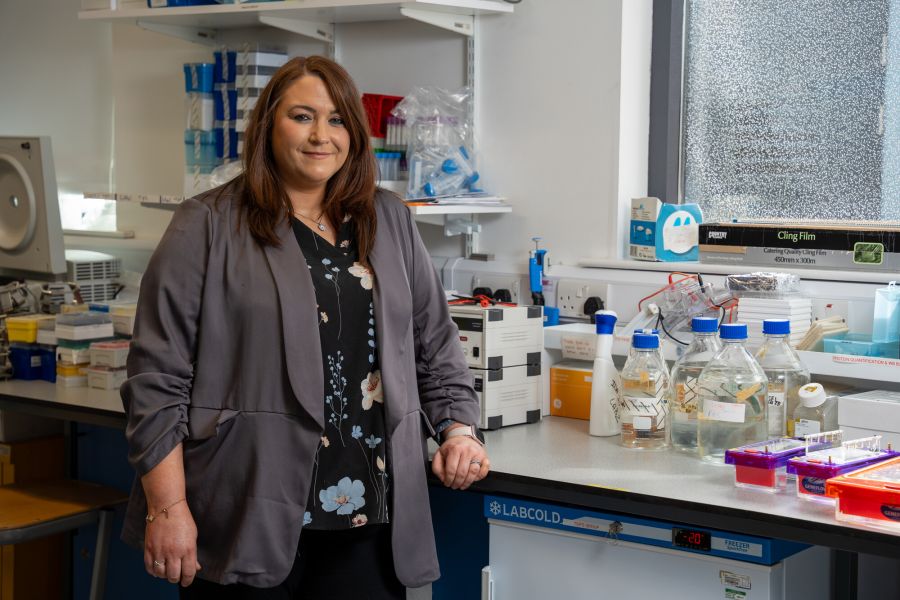Chronic inflammation is a common thread linking many of today’s most serious health conditions—including glaucoma, cardiovascular disease, and neuroinflammatory disorders.
At Ulster University’s School of Medicine in Derry~Londonderry, Dr Victoria McGilligan, Senior Lecturer in Personalised Medicine, is leading pioneering research to tackle this root cause and develop targeted biological therapies that offer new hope for patients.
Victoria leads an ambitious programme focused on tackling the NLRP3 inflammasome, a key driver of harmful inflammation that contributes to a range of chronic, life-limiting conditions. From sight loss caused by glaucoma to plaque build-up in coronary artery disease, her work is paving the way for a new generation of targeted biological therapies.
A Novel Antibody with Real-World Potential
At the heart of Victoria’s research is InflamAb, a novel antibody therapy she invented to inhibit the NLRP3 inflammasome. This therapy is showing promise in two major disease areas: cardiovascular disease, where it slows the progression of plaque in arteries, and glaucoma, where it protects retinal ganglion cells from degeneration.
Her team’s recent work with Harvard Medical School and new funding from Glaucoma UK are helping to accelerate this research, offering new hope for patients living with degenerative eye disease. A newly published paper in collaboration with Leiden University, appearing in the Journal of the American College of Cardiology (JACC), further demonstrates the potential of this therapy in treating heart disease.
“One in three adults lives with more than one chronic condition,” Victoria explains. “Many of these are linked by a shared root cause: chronic inflammation. That’s what we’re targeting.”
From Lab to Life: Athlas Therapeutics
To move this innovation closer to clinical use, Victoria and her team are establishing a spin-out company, Athlas Therapeutics. Named after the Gaelic word for inflammation, Athlas will help bring InflamAb to market using an innovative delivery system called IntraCell. This technology ensures the antibody is delivered only to inflamed cells—maximising its impact while minimising side effects.
IntraCell also overcomes a major hurdle in drug development: delivering large molecules inside cells. This breakthrough opens up new possibilities for targeting diseases that were previously considered "undruggable."
Collaboration and Career Development
Victoria’s success is grounded in a strong network of collaboration. She works closely with international institutions such as Harvard Medical School and Leiden University, as well as biopharma and diagnostic companies. Clinician partners like Professor Colin Willoughby and Dr Aaron Peace help bridge the gap between research and real-world impact.
Beyond her scientific achievements, Victoria is committed to supporting the next generation of researchers. The InflamAb project has created exciting opportunities for PhD students and Early Career Researchers, providing them with hands-on experience in one of the most dynamic areas of biomedical innovation.
Tackling a Global Health Challenge
Victoria’s research falls under the university’s strategic themes of Transforming Health and Inspiring Creativity and Innovation. By focusing on biomarker discovery, precision therapies, and companion diagnostics, her team is advancing a more personalised and effective approach to medicine.
Through innovative science, strategic partnerships, and a vision for real-world application, Dr Victoria McGilligan is leading the charge against chronic inflammatory diseases—bringing new solutions, and new hope, to some of the most pressing health challenges of our time.

















